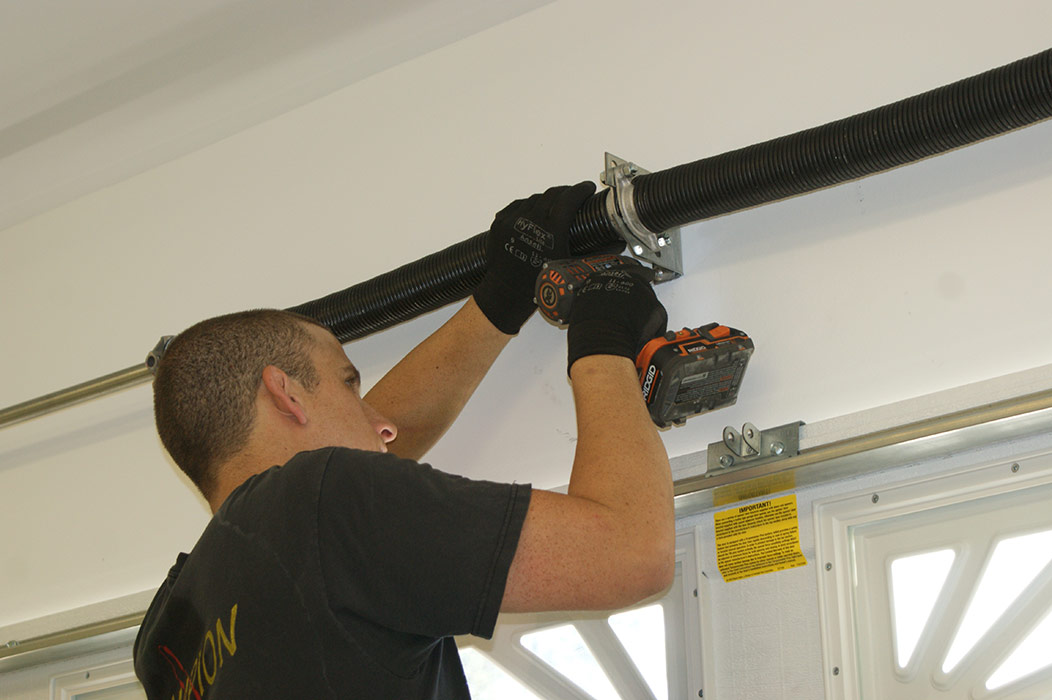
Breaking Down Different Garage Door Springs
Garage door springs. You may be familiar with them, but they are often overlooked by homeowners. Do you know that they are one of the most important components of your garage door and garage door opener? Your garage door springs allow you to conveniently raise and lower your garage door. Now that you are aware of their importance, it is time to pay more attention. So, what are the different types of garage door springs?
What are the Different Types of Garage Door Springs
A garage door repair tip is to inspect your springs often, which means they may need to be replaced eventually. Different spring options are available for garage doors. Typically, garage door springs are generally classified either as extension springs or torsion springs.
Extension Springs
As the name implies, extension springs store energy by stretching or extending. When the garage door is closed, more weight pan out the horizontal track, adding tension to the stretched extension springs.

Typically, a garage door has two extension springs, with each of them placed on either door side and running parallel to the horizontal track. Each of these springs provides independent tension. When dealing with a garage door with extension springs, you can take mechanical advantage of metal pulleys. Based on the types of ends, extension springs are further categorized into three: double-looped ends, open-looped ends, and clipped ends.
- Open-looped Ends: This type of extension springs is the easiest to replace, as it does not require opening the eyebolt or disassembling the pulley. One disadvantage, though, is that you need to change the entire spring even if it is just the part that is damaged.
- Double-looped Ends: An extension spring that is stronger than that with open-looped is double-looped ends. This type has two coils at the spring’s end that attach to the pulley and eyebolt. Although stronger, double-looped ends extension springs can be harder to replace.
- Clipped Ends: Clipped ends garage door extension springs are the most durable type among the three. The clips put the least stress on the spring, which is one factor that prolongs its service life. Clipped ends extension springs are the ideal and standard for 200-pound (or above) garage doors. The disadvantage, however, is that they are the hardest to change.
Torsion Springs
Torsion springs are placed on the metal shaft directly above the garage door opening. Once installed, aluminum drums are positioned on either end of the shaft. The number of torsion springs to be installed on your garage door ranges from one to four depending on the door’s size (you need to know how to measure garage door springs), strength, and weight.

Unlike that of extension springs, the energy or force provided by every torsion spring is equally distributed over the shaft before it is carried to the drums. As a result, the cables spin at an equal rate and the garage door opens. Torsion springs have several types:
- Standard Torsion Spring: Typically used on residential garage doors, standard torsion springs are installed above the garage opening. Running through the middle and supporting the springs is the metal shaft. If you have a light garage door, one standard torsion spring is usually enough; otherwise, two is should be used.
- Early Set Torsion Spring: These torsion springs are placed in the mid part of the torsion shaft. A different type of hardware is installed on each end of the shaft, adjacent to the cable drums.
- Steel Rolling Door Torsion Spring: Usually used in commercial buildings, these torsion springs are set within the torsion barrel supporting the rolling door.
- Torque Master Torsion Spring: This type of torsion spring is considered the safest among all types. They are enclosed within the torsion shaft and are set in place by a winding cone found at the end of each torsion rod.
Questions
What are the Springs on a Garage Door?
Your garage door springs can either be an extension or torsion spring system, with the latter being the most common. Torsion springs are normally installed horizontally at the top of the door opening. As the garage door goes down, the cables connected to the door’s bottom corner causes a garage door spring winding direction.
Should you Replace Both Garage Door Springs at the Same Time?
It depends on the number of springs mounted. If your garage door uses two springs to pull it up, replacing both of them is a must even if just one spring is broken. Contact our team of professionals here at Helotes Overhead Garage Doors if you need any maintenance or repairs done to your garage door.
How Long does a Garage Door Spring Last?
The average service life of a garage door spring is seven to nine years. However, the more you use your garage door – let’s say you use it as your front door, the higher the daily cycles will be, shortening the life span of your garage door spring to around four to six years. It is also possible that a garage door spring breaks after just a year, though it is very rare. While it’s possible to replace a spring yourself, it’s best to leave it to the professionals to prevent an injury from occurring.
In Conclusion
Your garage door spring is an important part of your garage door, so it’s important to know what type your garage door has. Garage door springs can either be extension or torsion springs. Familiarizing yourself with each type will help you identify the appropriate one for your door. Not only will you learn what are the different types of garage door springs, but it will also give you an idea of how to tell if garage door spring is broken to prolong its service life.



